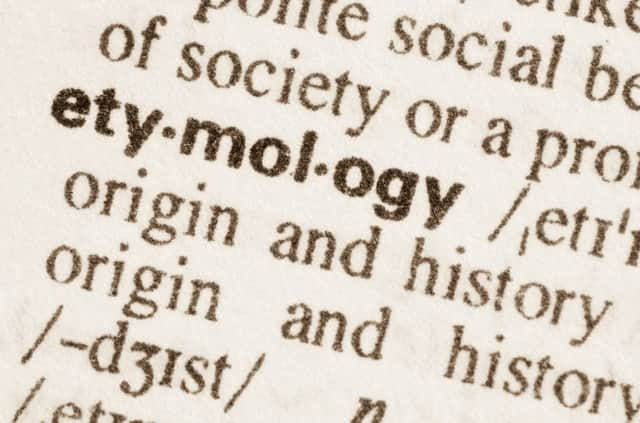These 8 common words and phrases have racist connotations you might not know about


Since the death of George Floyd in police custody reignited the momentum behind Black Lives Matter protests across the world, institutions and establishments have been reviewing their practises, and people from all walks of life have been urged to take note of their actions.
All sorts of things have been affected by people’s new lens on life.
Advertisement
Hide AdAdvertisement
Hide AdBut what if we told you countless seemingly ‘innocent’ words, phrases and terms actually originated in the time of slavery, and other racially sensitive times.
And some of those phrases were at one time outright offensive towards those they were designed to undermine?
Here are 8 words, phrases and terms you didn't know had racist links. You might want to stop using these:
Uppity
Cambridge English Dictionary: An uppity person behaves in an unpleasant way because they think that they are more important than they really are
Advertisement
Hide AdAdvertisement
Hide AdAccording to The Atlantic, during Segregation, racist southerners used the term "uppity" to describe Black people "who didn't know their place," socioeconomically speaking.
It's thought the term originated within the Black community, but was quickly adopted by bigots.
Multiple sources online say the phrase has racist connotations “when applied to” people of colour, but it’s perhaps best to just bin the term entirely if you’re not sure.
Sold down the river
Wiktionary: To betray, especially in a manner which causes serious difficulty for the one betrayed
Advertisement
Hide AdAdvertisement
Hide AdThis one almost certainly comes from the time of slavery, when masters in the north would sell their misbehaving slaves to plantations further down the Mississippi River, where conditions were known to be much harsher.
Eenie meenie miney moe
You may have sung a version of this playground rhyme at school yourself, although hopefully it replaced a key offending word with “tiger” at the very least.
If you’re still struggling to see what’s wrong with the chant, think back to the furore surrounding Top Gear presenter Jeremy Clarkson’s uncensored reciting of the original in 2014.
Rudyard Kipling mentioned it as a "counting-out song" in his book, Land And Sea Tales For Scouts And Guides.
Hip hip hooray
Advertisement
Hide AdAdvertisement
Hide AdIt’s claimed the jubilant cry of ‘hip hip hooray’ has anti-Semetic connotations.
Germans are thought to have cheered "hep hep” – a German herding call – as they forced Jews from their homes during 19th century demonstrations, though others believe that the term didn't originate as a racist phrase, but instead evolved to have racist usage.
Nitty gritty
Cambridge English Dictionary: The basic facts of a situation
It’s believed the phrase once had less palatable connotations, with many considering the term to have roots to be in the slave trade – its use is already banned in institutions like the police force.
Advertisement
Hide AdAdvertisement
Hide AdTheories suggest the expression originally referred to the detritus found in the bottom of boats once a shipment of slaves had been removed from the hold.
A nit is the egg of a louse, a parasitic insect that would have been rife among the poor conditions those being transported for slavery would have been kept in.
And in American parlance, grits are coarse-ground grain, which would have been used as a cheap foodstuff to keep a slave ship’s cargo barely fed over the course of their long, transatlantic journeys.
Long time, no see
A theory behind this seemingly innocent phrase’s origin says “long time, no see” came from Native Americans speaking English, and reportedly first appeared in old Western novels.
Advertisement
Hide AdAdvertisement
Hide AdThe phrase could be seen as mimicking non-native English speakers’ attempts to speak the language.
Moron
Cambridge English Dictionary: A very stupid person
Originally coined by eugenicist and psychologist Henry H. Goddard, ‘moron’ was first used to describe people with low intelligence and behavioural issues.
Goddard made it his mission to ensure “feeble-minded morons” did not immigrate to the United States, sending his staff to assess the “intelligence” of people coming to the country in the early 20th century.
Nearly half of all the Hungarian, Italian and Jewish immigrants who arrived were classified as “morons” and deported in 1913.
Fuzzy wuzzy
Advertisement
Hide AdAdvertisement
Hide AdYou may have used this term used during cutesy, baby-talk. But once you understand its origins, you won’t be using it again.
Fuzzy-wuzzy was a racist term used by British soldiers in the 1800s in relation to Black people, who were often stereotyped for their hair texture.